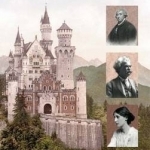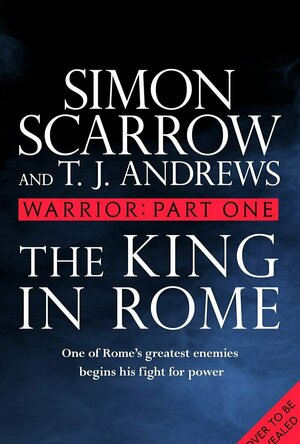Reading the Male Gaze in Literature and Culture: Studies in Erotic Epistemology
Book
This book examines the phenomenon of 'the male gaze', a concept which has spread beyond academia and...

Silent Nights: Christmas Mysteries
Book
Christmas is a mysterious, as well as magical, time of year. Strange things can happen, and this...

The Adjacent
Book
Tibor Tarent, a freelance photographer, is recalled to Britain from Anatolia where his wife Melanie...
Matthew Krueger (10051 KP) rated The Satanic Rites of Dracula (1974) in Movies
Nov 23, 2020
The plot: British-made chiller about a blood-thirsty count who takes up residence in modern London to develop a new strain of bubonic plague, with the evil intention of annihilating all life on Earth.
Work began on what was tentatively titled Dracula is Dead...and Well and Living in London in November 1972.
The film itself is a mixture of horror, science fiction and a spy thriller, with a screenplay by Don Houghton, a veteran of BBC's Doctor Who. This is the problem its trying to be more sci-fi and a spy thriller than horror.
This was the final Hammer film that Christopher Lee and Peter Cushing would make together. The two stars would eventually reunite one more time in House of the Long Shadows, ten years later.
A huge let down.
Pete Fowler recommended The Willows by Belbury Poly in Music (curated)

Home Fire
Book
LONGLISTED FOR THE MAN BOOKER PRIZE 2017 From the Orange and Baileys Prize-shortlisted author...
Fiction social issues
Lyndsey Gollogly (2893 KP) rated Forbidden Lady ( Historical 1) in Books
May 17, 2023
Kindle
Forbidden Lady ( Historical 1)
By Kerrelyn Sparks
⭐️⭐️⭐️⭐️
Virginia Munro could not believe her ears. This bewigged, bejeweled, and bedeviling man was trying to buy her? As if she were some trollop on the Boston docks?
Before she's fully able to give in to her outrage, the fop moves on - and Virginia refuses to spare him another thought.
But Quincy Stanton is not what he seems. By day, he poses as a carefree Loyalist with an army of wigs and a wardrobe that favors lavender. By night, he wages a secret war against the British with an impressive collection of eighteenth-century spy gadgets. If anyone were to discover the truth, Quincy would hang, yet he can't seem to stay away from the lovely and saucy Virginia. Will their attraction lead to love . . . or danger?
I really enjoyed it. I do love historical fiction think it has to be one of my favourites and this era is definitely one of the best. I loved the James Bond style espionage going on. I really enjoyed the story if I had one thing that slightly annoyed me was it jumped a little from scene to scene in a strange way. But other than that I really liked it.
David McK (3692 KP) rated The King in Rome (Warrior #1) in Books
May 28, 2023
Even more so - again, IMO - with those set during the time of the Roman Empire: I think we're approaching 20, now, of his full length Cato and Macro novels (edit: as of typing this, 22 novels).
I can't say much about TJ Andrews, other than I'm aware he has collaborated with Scarrow on a a few e-book novella's.
This is the latest in that collaboration, taking - as it's inspiration - the tale of Caratacus, the British warlord who defied the Empire before the time of Boudica, and who appeared in some of the earlier Eagle (aka Cato and Macro) novels as an antagonist. Eventually defeated by the Roman legions, Caratacus was spared by the Emperor Claudius to live out his life in the confines of Rome (and with Prefect Cato being name dropped when he mentions that in this novella), which is where this series of novellas picks up, as Caratacus is persuaded to tell his life story to a Roman historian who first encounters him at a banquet hosted by the Emperor Nero.
Told, therefore, from the 'other point of view' than the usual, I'm interested in seeing where this goes!

The World of Tomorrow
Book
Three brothers caught up in a whirlwind week of love, blackmail, and betrayal that culminates in an...
Fiction

Germany: Beyond the Enchanted Forest: A Literary Anthology
Book
'German military figures had a certain terrifying glamour,' wrote Patrick Leigh Fermor, recalling...



